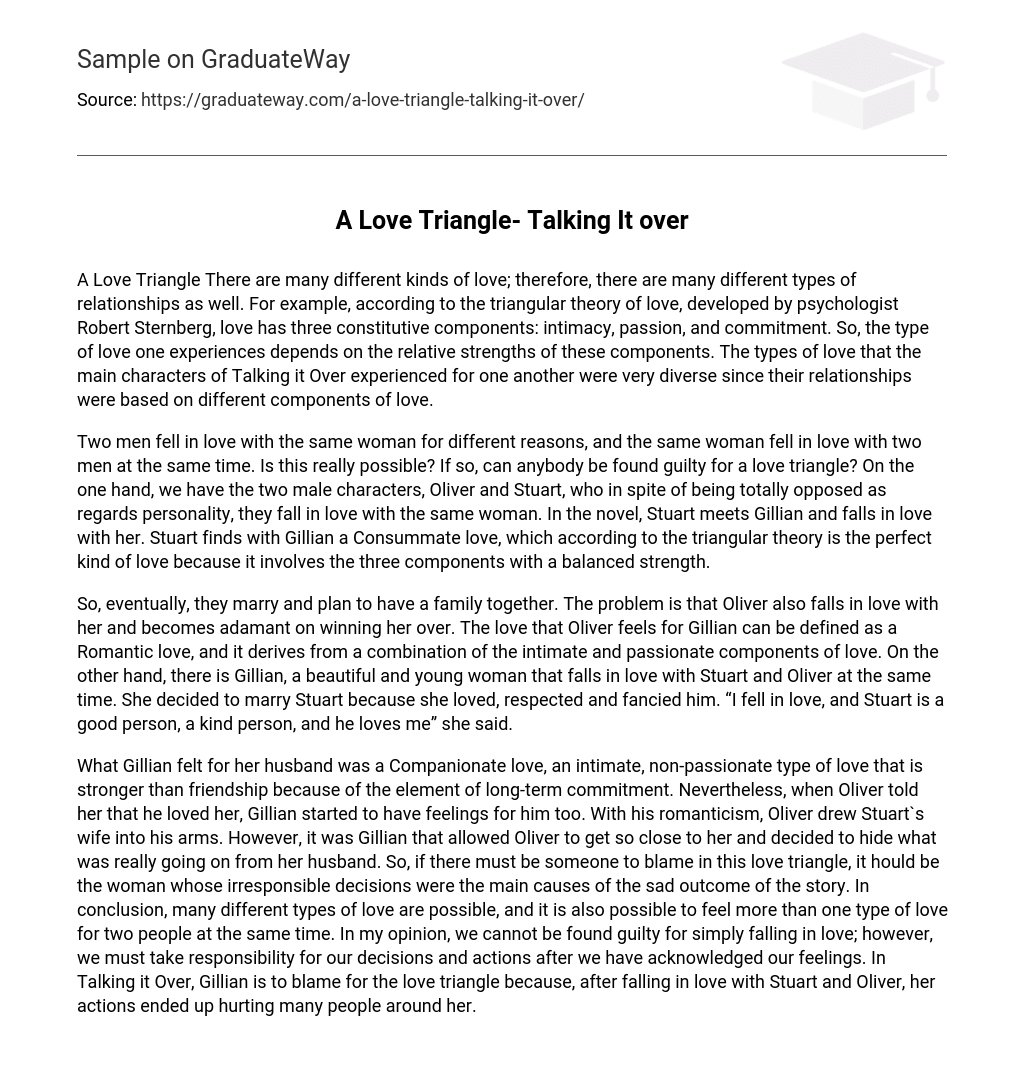According to psychologist Robert Sternberg’s triangular theory of love, there are different types of relationships depending on the components of love: intimacy, passion, and commitment. Talking it Over’s main characters experienced diverse types of love based on these components.
Is it possible for two men to have differing motivations but still become enamored with the same woman? And what about the woman? Can she simultaneously love two men? If this scenario arises, can anyone be held accountable for a love triangle?
We have Oliver and Stuart on one side, both male characters who, despite their contrasting personalities, develop feelings for the same woman. In the novel, Stuart encounters Gillian and becomes deeply infatuated with her. Stuart experiences Consummate love with Gillian which, according to the triangular theory, is regarded as the ultimate form of love as it encompasses three equally powerful components.
Eventually, Gillian and Oliver marry with the intention of starting a family. However, Oliver also becomes infatuated with Gillian and is determined to win her affections. Oliver’s love for Gillian can be described as Romantic love, arising from a combination of intimacy and passion. Conversely, Gillian, a young and attractive woman, finds herself in love with both Stuart and Oliver. Despite her feelings for Oliver, Gillian decides to wed Stuart because she loves and respects him, stating “I fell in love, and Stuart is a good person, a kind person, and he loves me.”
Gillian’s feelings towards her spouse were described as companionate love, a deep and non-passionate form of affection that surpasses friendship due to long-term commitment. However, when Oliver expressed his love for her, Gillian’s emotions towards him also began to develop. Oliver’s romanticism drew Stuart’s wife into his embrace. Nevertheless, it was Gillian who allowed Oliver to become so intimate with her and made the decision to conceal their affair from her husband. Consequently, if anyone is accountable in this love triangle, it should be the woman whose thoughtless choices served as the main catalyst for the tragic outcome of the story. In summary, different forms of love can coexist concurrently and it is possible to experience multiple types of affection for various individuals at once. In my viewpoint, we cannot be held responsible solely for falling in love; however, we must take responsibility for our decisions and actions once we acknowledge our emotions. In Talking it Over novel, Gillian assumes culpability for the love triangle as her actions ultimately caused harm to those around her.





